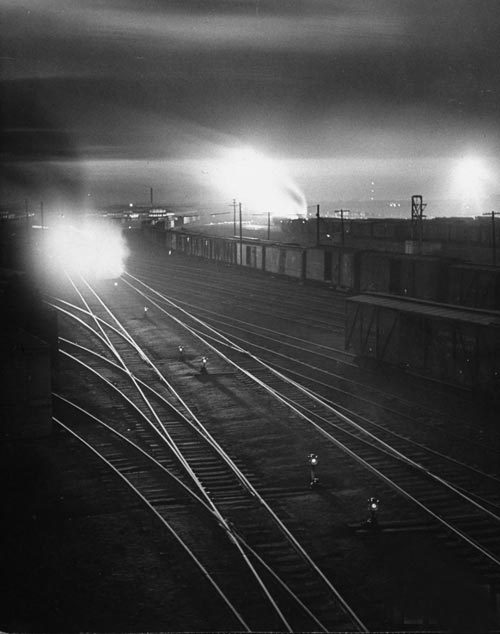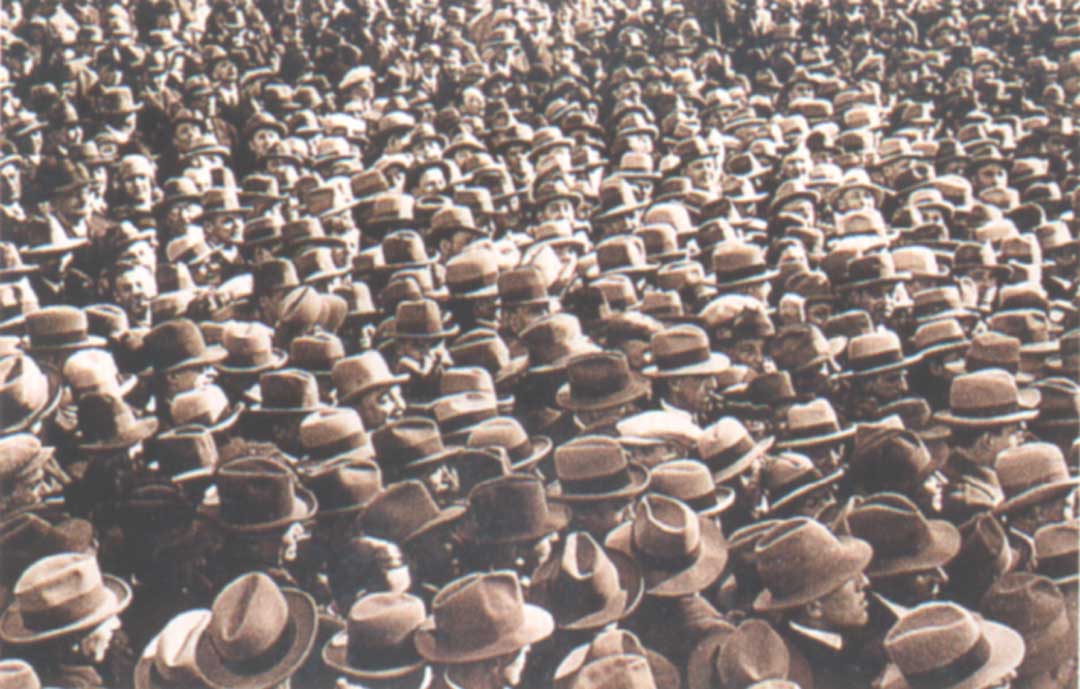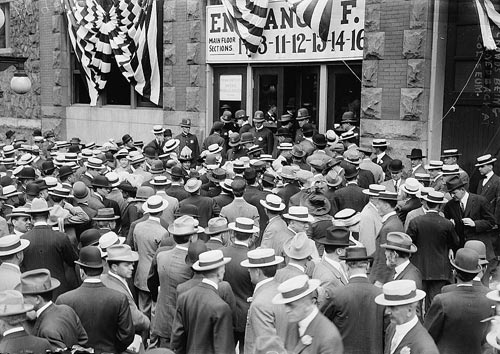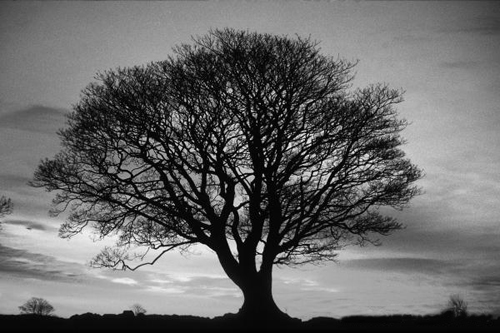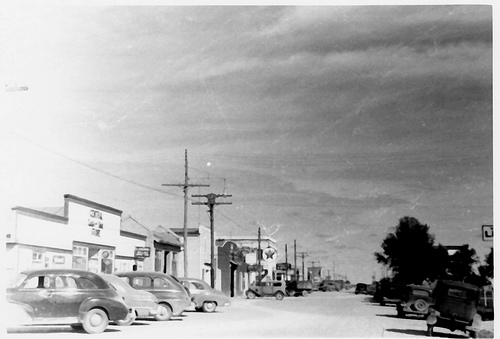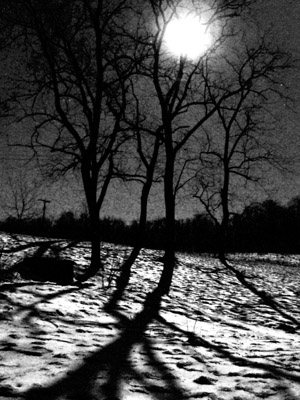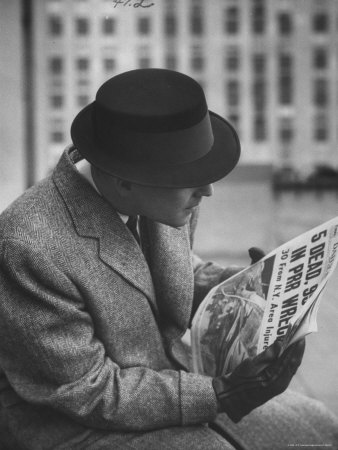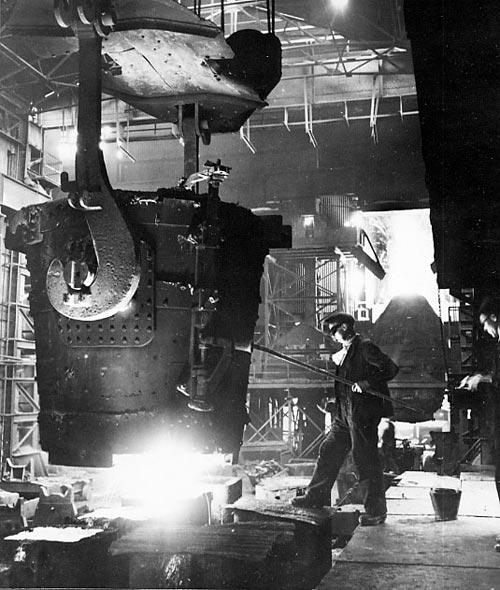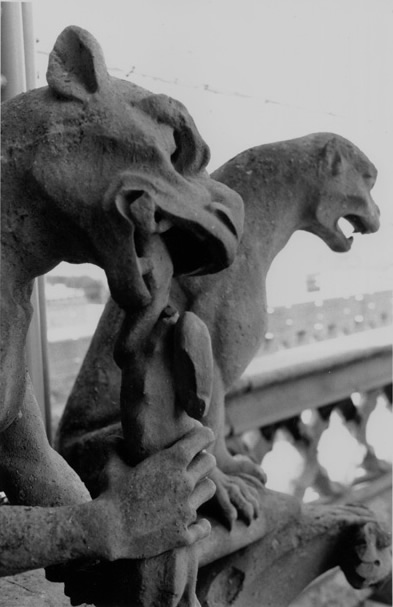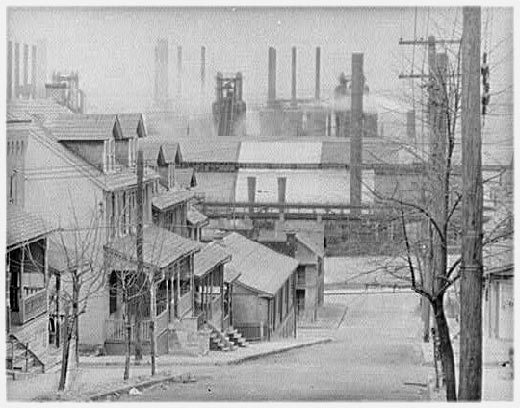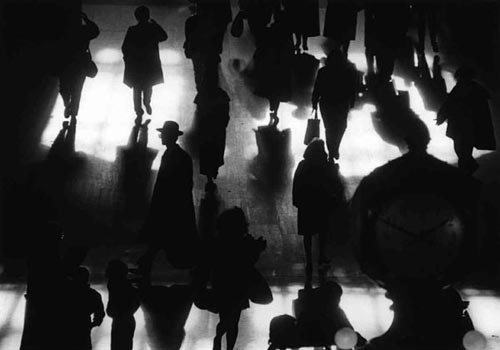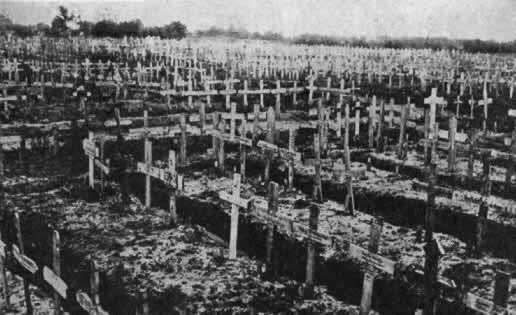Carl Sandburg
Selected Poems
|
INTRODUCTION Carl Sandburg was a great voice of the American industrial age, a "people's poet" who combined the mystical patriotism of Walt Whitman with the social activism of Woody Guthrie. Sandburg is remembered as a raw, folksy poet, whose early work focused on the bustle and spirit of midwestern and urban America; his most famous poem celebrates the city of Chicago, begining: "Hog Butcher for the World / Tool Maker, Stacker of Wheat / Player with Railroads and the Nation's Freight Handler / Stormy, husky, brawling, City of the Big Shoulders." Sandburg is nearly as well known for his six-volume biography of Abraham Lincoln, which still is considered the definitive biography of the president. Sandburg wrote for the Chicago Daily News and often travelled around the country, singing and collecting folk songs and reciting poetry. During the course of his career, Sandburg won three Pulitzer Prizes, one for history and two for poetry. (composite from various online sources) HATS HATS, where do you belong? what is under you? On the rim of a skyscraper’s forehead I looked down and saw: hats: fifty thousand hats: Swarming with a noise of bees and sheep, cattle and waterfalls, Stopping with a silence of sea grass, a silence of prairie corn. Hats: tell me your high hopes. SKY PIECES Proudly the fedoras march on the heads of the some- what careless men. Proudly the slouches march on the heads of the still more careless men. Proudly the panamas perch on the noggins of dapper debonair men. Comically somber the derbies gloom on the earnest sol- emn noodles. And the sombrero, most proud, most careless, most dap- per and debonair of all, somberly the sombrero marches on the heads of important men who know what they want. Hats are sky-pieces; hats have a destiny; wish your hat slowly; your hat is you. HAUNTS
There are places I go when I am strong. One is a marsh pool where I used to go with a long-ear hound-dog. One is a wild crabapple tree; I was there a moonlight night with a girl. The dog is gone; the girl is gone; I go to these places when there is no other place to go. from PRAIRIE I speak of new cities and new people. I tell you the past is a bucket of ashes. I tell you yesterday is a wind gone down, a sun dropped in the west. I tell you there is nothing in the world only an ocean of to-morrows, a sky of to-morrows. UNDER THE HARVEST MOON UNDER the harvest moon, When the soft silver Drips shimmering Over the garden nights, Death, the gray mocker, Comes and whispers to you As a beautiful friend Who remembers. Under the summer roses When the flagrant crimson Lurks in the dusk Of the wild red leaves, Love, with little hands, Comes and touches you With a thousand memories, And asks you Beautiful, unanswerable questions. UNDER A HAT RIM
WHILE the hum and the hurry Of passing footfalls Beat in my ear like the restless surf Of a wind-blown sea, A soul came to me Out of the look on a face. Eyes like a lake Where a storm-wind roams Caught me from under The rim of a hat. I thought of a midsea wreck and bruised fingers clinging to a broken state-room door. PRAYERS OF STEEL
LAY me on an anvil, O God. Beat me and hammer me into a crowbar. Let me pry loose old walls. Let me lift and loosen old foundations. Lay me on an anvil, O God. Beat me and hammer me into a steel spike. Drive me into the girders that hold a skyscraper together. Take red-hot rivets and fasten me into the central girders. Let me be the great nail holding a skyscraper through blue nights into white stars. BROKEN FACE GARGOYLES
ALL I can give you is broken-face gargoyles. It is too early to sing and dance at funerals, Though I can whisper to you I am looking for an undertaker humming a lullaby and throwing his feet in a swift and mystic buck-and-wing, now you see it and now you don’t. Fish to swim a pool in your garden flashing a speckled silver, A basket of wine-saps filling your room with flame-dark for your eyes and the tang of valley orchards for your nose, Such a beautiful pail of fish, such a beautiful peck of apples, I cannot bring you now. It is too early and I am not footloose yet. I shall come in the night when I come with a hammer and saw. I shall come near your window, where you look out when your eyes open in the morning, And there I shall slam together bird-houses and bird-baths for wing-loose wrens and hummers to live in, birds with yellow wing tips to blur and buzz soft all summer, So I shall make little fool homes with doors, always open doors for all and each to run away when they want to. I shall come just like that even though now it is early and I am not yet footloose, Even though I am still looking for an undertaker with a raw, wind-bitten face and a dance in his feet. I make a date with you (put it down) for six o’clock in the evening a thousand years from now. All I can give you now is broken-face gargoyles. All I can give you now is a double gorilla head with two fish mouths and four eagle eyes hooked on a street wall, spouting water and looking two ways to the ends of the street for the new people, the young strangers, coming, coming, always coming. It is early. I shall yet be footloose. UPSTREAM The strong men keep coming on. They go down shot, hanged, sick, broken. They live on fighting, singing, lucky as plungers. The strong men…they keep coming on. They strong mothers pulling them from a dark sea, a great prairie, a long mountain. Call hallelujah, call amen, call deep thanks. The strong men keep coming on. PENNSYLVANIA I HAVE been in Pennsylvania, In the Monongahela and the Hocking Valleys. In the blue Susquehanna On a Saturday morning I saw the mounted constabulary go by, I saw boys playing marbles. Spring and the hills laughed. And in places Along the Appalachian chain, I saw steel arms handling coal and iron, And I saw the white-cauliflower faces Of miners’ wives waiting for the men to come home from the day’s work. I made color studies in crimson and violet Over the dust and domes of culm at sunset. APRONS OF SILENCE
MANY things I might have said today. And I kept my mouth shut. So many times I was asked To come and say the same things Everybody was saying, no end To the yes-yes, yes-yes, me-too, me-too. The aprons of silence covered me. A wire and hatch held my tongue. I spit nails into an abyss and listened. I shut off the gabble of Jones, Johnson, Smith. All whose names take pages in the city directory. I fixed up a padded cell and lugged it around. I locked myself in and nobody knew it. Only the keeper and the kept in the hoosegow Knew it—on the streets, in the postoffice, On the cars, into the railroad station Where the caller was calling, “All a-board, All a-board for .. Blaa-blaa .. Blaa-blaa, Blaa-blaa .. and all points northwest .. all a-board.” Here I took along my own hoosegow And did business with my own thoughts. Do you see? It must be the aprons of silence. SPEED
The silent litany of the workmen goes on – Speed, speed, we are the makers of speed. We make the flying, crying motors, Clutches, brakes, and axles, Gears, ignitions, accelerators, Spokes and springs and shock absorbers. The silent litany of the workmen goes on – Speed, speed, we are the makers of speed; Axles, clutches, levers, shovels, We make signals and lay the way – Speed, speed. The trees come down to our tools, We carve the wood to the wanted shape. The whining propeller's song in the sky, The steady drone of the overland truck, Comes from our hands; us; the makers of speed. Speed; the turbines crossing the Big Pond, Every nut and bolt, every bar and screw, Every fitted and whirring shaft, They came from us, the makers, Us, who know how, Us, the high designers and the automatic feeders, Us, with heads, Us, with hands, Us on the long haul, the short flight, We are the makers; lay the blame on us – The makers of speed. THE JUNK MAN I AM glad God saw Death And gave Death a job taking care of all who are tired of living: When all the wheels in a clock are worn and slow and the connections loose And the clock goes on ticking and telling the wrong time from hour to hour And people around the house joke about what a bum clock it is, How glad the clock is when the big Junk Man drives his wagon Up to the house and puts his arms around the clock and says: “You don’t belong here, You gotta come Along with me,” How glad the clock is then, when it feels the arms of the Junk Man close around it and carry it away. A MILLION YOUNG WORKMEN, 1915 A MILLION young workmen straight and strong lay stiff on the grass and roads, And the million are now under soil and their rottening flesh will in the years feed roots of blood-red roses. Yes, this million of young workmen slaughtered one another and never saw their red hands. And oh, it would have been a great job of killing and a new and beautiful thing under the sun if the million knew why they hacked and tore each other to death. The kings are grinning, the kaiser and the czar—they are alive riding in leather-seated motor cars, and they have their women and roses for ease, and they eat fresh-poached eggs for breakfast, new butter on toast, sitting in tall water-tight houses reading the news of war. I dreamed a million ghosts of the young workmen rose in their shirts all soaked in crimson … and yelled: God damn the grinning kings, God damn the kaiser and the czar. |

